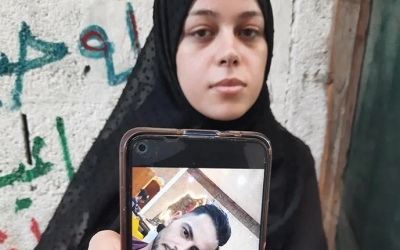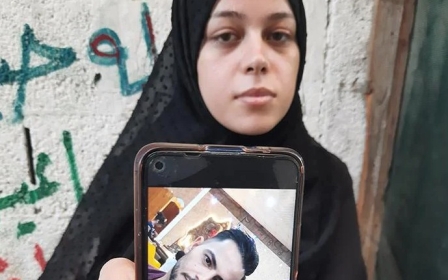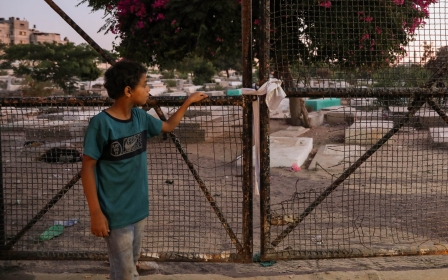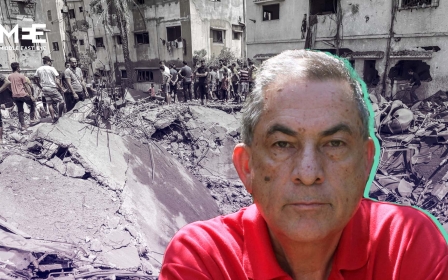Israeli attacks, western collusion and the high price of Palestinian freedom
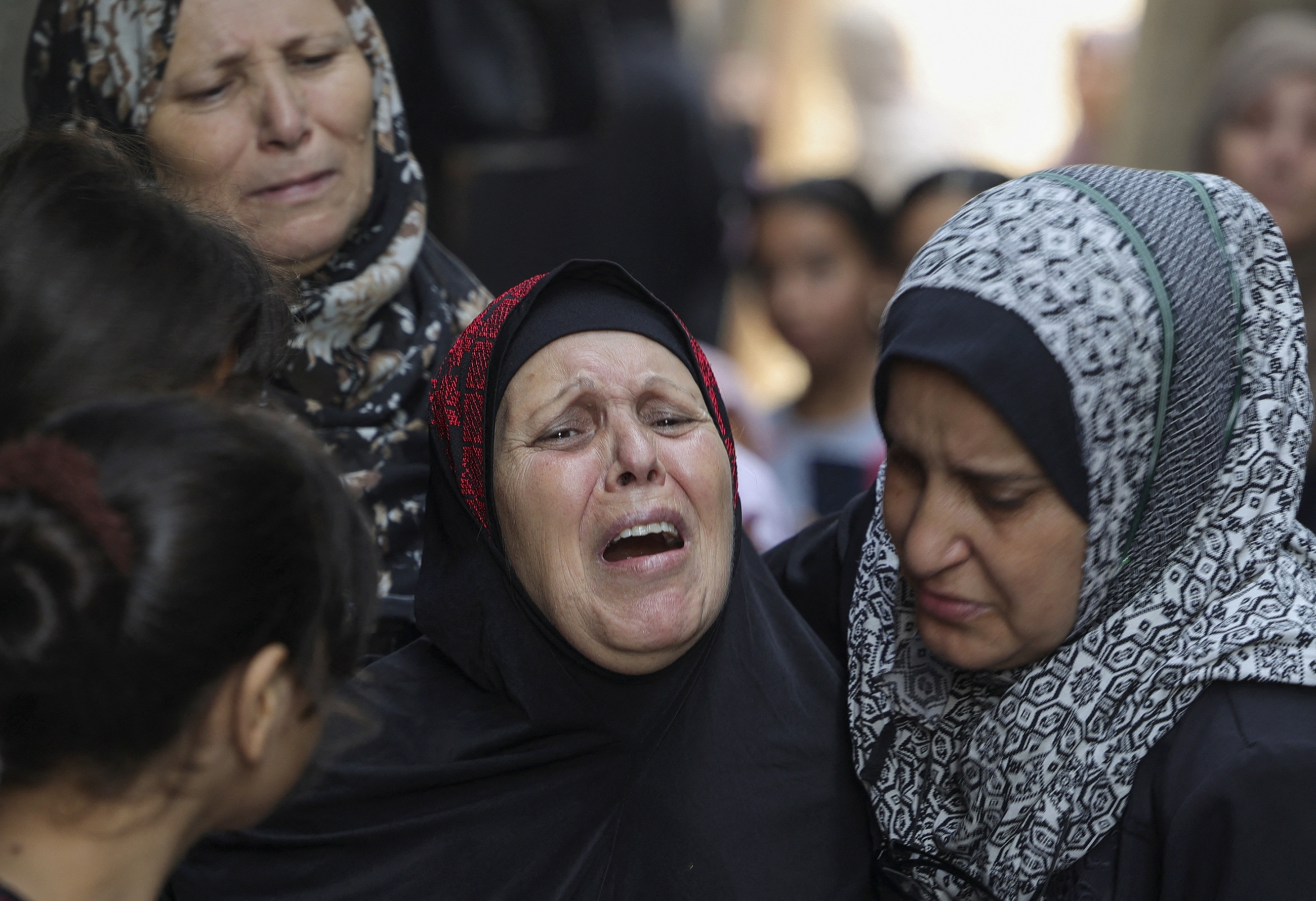
On the morning of Friday, 5 August, five-year-old Alaa Kaddoum woke up in her Shujaiya home in the centre of Gaza excited that her grandfather would be coming to take her to buy a new school uniform and backpack.
She had been dreaming of that day all summer ahead of her first day of kindergarten in just a few weeks. But before Alaa could set out on her shopping trip, her home was hit by an Israeli air strike. She was killed instantly.
In Rafah, in the south of Gaza, Abeer Harb, a 24-year-old student studying information technology, went to visit her fiance, 30-year-old Ismail Dweik, to go over wedding plans.
Ismail, who looked after his elderly mother, owned a small business he had been hoping to grow in order to provide for his expanding family. Abeer was very happy that day because Ismail had phoned her father for permission to set a wedding date.
But the meeting never happened. A day later, Ismail's body was recovered from under the rubble of his home. He was found tightly hugging his mother as their house was obliterated by an Israeli missile.
On the same day, in the Jabalia refugee camp in the north of Gaza, Najwa Abu Hamda was not prepared for the devastating news she was about to receive.
Her 19-year-old son, Khalil, had been killed in an air strike. Just that morning, Najwa, who struggled for 15 years before having her only child through in vitro fertilisation, told neighbours that she and her husband hoped Khalil would get married soon and bless them with grandchildren.
Their hopes for the future are irrevocably destroyed by this unimaginable loss.
In the Bureij refugee camp in the east of Gaza, 45-year-old Sheikh Yasser Alnabbahin, tried to soothe his three children as the terrifying hum of Israeli warplanes hovered above. Within a few minutes, however, the judicial officer and part-time religious teacher, his 13-year-old twins Mohammad and Dalia, and his nine-year old son Ahmad, were incinerated by an Israeli missile.
Only Yasser's mother and wife survived. The Israelis claimed to have hit militants.
The next day, on 6 August, in the Jabalia refugee camp, 11-year-old Rahaf Sulaiman, stepped out of her house at around sunset to call out to her brother to come home for dinner. Without any warning, she was hit by an Israeli missile, causing the tiny girl to lose her right hand and both legs.
Regardless of which part of Gaza one lived, 45 Palestinians - half of whom were women and children - were killed. In those 55 hours of hell, more than 360 others were injured and maimed because of Israel's insatiable appetite to punish, target and subjugate Palestinians in Gaza.
Killing for votes
Israel's military aggression began that morning with an unprovoked targeted assassination of a commander of the Islamic Jihad, one of the main Palestinian resistance groups.
The use of violence has long been a tactic by Israeli leaders in the midst of their election campaigns for political gain. Shimon Perez tried it during his political campaign in April 1996, when Israel committed the Qana massacre, killing more than 100 children.
As he was launching his re-election campaign, Ehud Olmert waged a devastating three-week war on Gaza in December 2008, which claimed the lives of 1,400 Palestinians, including nearly 500 women and children, with thousands more injured.
The use of violence has long been a tactic by Israeli leaders in the midst of their election campaigns for political gain
In May 2021, as Benjamin Netanyahu was preparing for his own re-election bid after several inconclusive elections, he unleashed the full force of the Israeli killing machine for 12 days on Gaza, resulting in more than 260 Palestinians killed and thousands more injured, and thousands of homes, buildings and businesses destroyed.
Similarly, the war this month was an attempt by the current Israeli leaders, Yair Lapid and Benny Gantz, to gain political ground over right-wing opposition leader Netanyahu before heading to the polls in November.
Interestingly enough, all Israeli leaders mentioned lost their re-election bids after none of these military campaigns managed to achieve their goal of vanquishing the enemy and gaining a decisive victory.
A failed strategy
In its latest assault on Gaza, Israel had five goals: first, it wanted to keep Gaza isolated from other uprisings in Palestine, particularly in the occupied West Bank and Jerusalem.
Second, it wanted to drive a wedge between the Palestinian resistance groups, primarily Hamas, the main party ruling Gaza, and its smaller sibling, Islamic Jihad.
Third, it sought to diminish the threat that Islamic Jihad posed to the Israeli occupation. New members comprising disenfranchised Palestinian youths have recently begun challenging Israeli security forces more forcefully in the West Bank, causing a rise in the organisation's popularity, particularly in the refugee camps of Jenin, Nablus and Tulkarm.
Fourth, Israel wanted Palestinians generally, but especially those in Gaza, to reach the lowest state of despondence and resignation in order to give up any notion of resisting its occupation and ultimately acquiesce to Israeli dictates.
Finally, Israel wanted to boost the morale of its citizens by achieving a quick and decisive victory in Gaza and erasing what many Israelis considered a humiliating setback last year when its forces could not defeat the resistance or realise its political goals.
In fact, Israel had to mobilise regional and international powers at the time to pressure the Palestinian resistance groups to a ceasefire as the Israeli economy began to suffer with workers staying home or in bunkers.
Despite its attempts to divide the resistance movements, it seems that the opposite actually occurred, with several statements from all sides declaring support for one another as well as worldwide, including Gulf states where normalisation with Israel has been a key goal of Israel, the US and their regional allies.
Even though Israel was able to assassinate two Islamic Jihad commanders, it does not seem that it weakened the group, which continued to resist and even fire at main Israeli cities and settlements until the last minute before ceasefire.
According to Israeli press and opposition parties, it does not appear that Israeli morale was uplifted, with many pundits and experts questioning the real motives of the war and the devastating negative coverage around the world due to Israel's atrocities.
Western collusion
But what has been nauseatingly consistent throughout Israel's vicious wars is western leaders' callous mantra that "Israel has the right to defend itself" - ruthlessly giving Israel a licence to kill any Palestinian it perceives as a threat or an obstacle to its designs.
By colluding with Israel, western governments have been sending an unmistakable message that Palestinian lives are expendable; freedom and human rights do not matter; the rule of law, democratic values, justice and equality are selective; and security and peace are not universal guarantees.
Yet, Palestinians are not oblivious to the tremendous sacrifices they have endured against the assault of the Zionist state for decades.
Palestinians mourn every victim and cry over every child. There is not a Palestinian home that is not scarred by a tragedy of a loved one killed, maimed, injured, arrested, or imprisoned, or a home demolished, bombed, or raised, a land confiscated or a tree uprooted.
Each time Israel launches an attack on Palestinians, it aims to extinguish their spirit of resistance and pressure them to give up their rights. But in the face of such brutality and disregard for human life, the people become even more determined and steadfast in their fight for justice and freedom.
Sooner or later, the world will recognise that the path of ignoring the plight of millions of people by supporting a settler-colonialist project and arming it with superior military power against children, mothers, young brides and grooms, and ordinary people is immoral and unsustainable.
Conscientious people across the world know that as well, as Nelson Mandela had once observed: "We know too well that our freedom is incomplete without the freedom of the Palestinians."
The views expressed in this article belong to the author and do not necessarily reflect the editorial policy of Middle East Eye.
Middle East Eye delivers independent and unrivalled coverage and analysis of the Middle East, North Africa and beyond. To learn more about republishing this content and the associated fees, please fill out this form. More about MEE can be found here.



